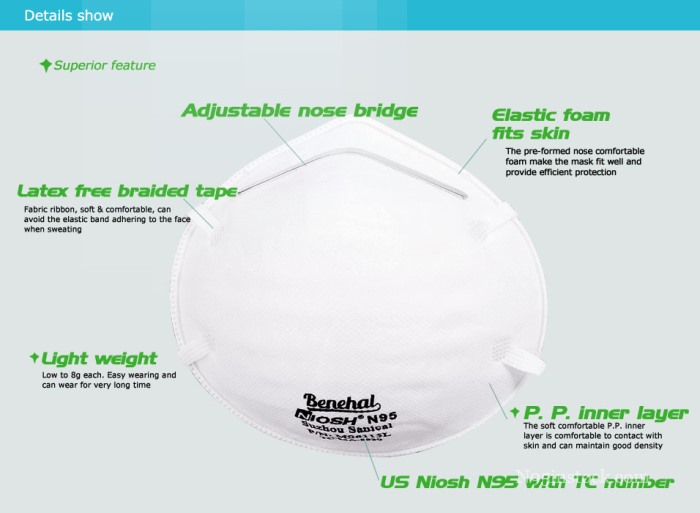As great the infection risk is without mouth-to-nose protection, a medical-grade mask or an FFP2 mask protects efficiently. Although a detailed analysis from researchers at the Max Planck Institute for Research in Gottingen showed that a tightly fitted FFP2 mask provides up to 75 times better protection than an appropriately fitted surgical mask, and that how a mask is worn makes a massive difference; even medical masks greatly lower infection risks than in situations with no mouth-nose protection whatsoever. The good news is that the risk drops significantly if both individuals are wearing well-fitting medical masks, or better yet, N95 or FFP2 masks. Clearly, FFP2 masks offer superior protection to surgical masks or fabric ones, and they only do so when used properly.
FFP2 masks are supposed to provide protection to the wearer as well as to the people around him. If surgically sealed tight to the face, the FFP2, FFP3, and KN95/N95 face masks in particular do not just protect against infection from droplets, they provide high levels of aerosol protection. N95 and KN95 masks are generally slightly tighter fit than Surgical, and the materials filter more particles as well, so the air passing through the materials rather than around the mask is filtered better. Tight-fitting FFP2 and KN95 masks are especially protective when both infected and noninfected people are wearing their masks correctly.
The full study also supports the intuitive hypothesis that, to effectively protect against infection, infected people, in particular, must wear a mask that filters well as can be, fits tight around their faces. The study confirmed that either the FFP2 or N95 masks are especially effective in filtering infectious particles out of the air — particularly if the mask is sealed tightly around the face. FFP3 masks are most effective, followed by FFP2/N95, followed by surgical masks, and lastly, cloth face coverings. FFP2, FFP3, N95, and other respirator masks are effective in protecting wearers against viral transmission.
However, surgical, FFP2, FFP3 and N95/KN95 masks are now recommended even for daily use, and wearing such masks is mandated in many places. Especially in situations when distancing rules cannot be consistently followed and multiple persons are coming together for long periods, surgical masks and surgical, FFP2, FFP3 and N95/KN95-grade masks offer a higher level of infection protection than the usual public masks cannot provide. Class FFP1 masks provide protection from fine powders and aerosol particles, and when these masks are capable of filtering particles as small as 0.11 um (coronavirus COVID-19 particle size), they offer effective protection from the coronavirus.
New studies by Surrey University and Bristol University, as well as the University of Exeter, ESPCI Paris, show that respirator FFP2 masks (Filter Facepiece) are up to five times more efficient in filtering particles carrying Covid-19 than cloth facemasks. The research, published in December by Germanys Max Planck Institute, found well-fitting FFP2 masks reduced infection risks from covid-19 by 0.1%. The study also found that N95 masks generally fit best on the face and neck, making sure that droplets and particles are not allowed around the mask.






